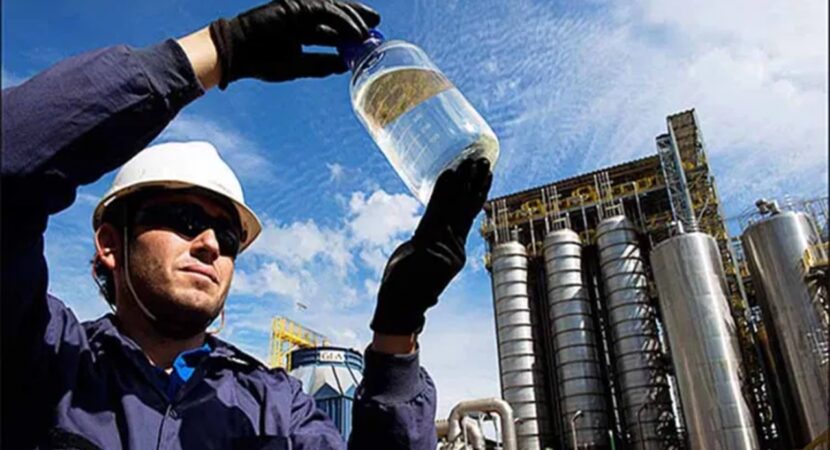
Brazil currently emits 17 million tons of CO2. Of this total, 4% of all its emissions originate from aviation. The use of biofuels from organic waste is an alternative for reducing emissions
Brazil has enormous potential to be a major producer of biofuel for aviation, but this will depend on the country's ability to take advantage of residues from sugarcane bagasse and straw, the wood industry, used cooking oil, bovine tallow and gases from the steel industry. This is the result of the RSB – Roundtable on Sustainable Biomaterials study, which is part of the Fuelling the Sustainable Bioeconomy project, funded by Boeing Global Engagement – and which will be the theme of the Biofuture Summit II/BBEST2020-21 conference from May 24 to 26, by half virtual.
Read also
- President of Petrobras and mayor of Macaé meet to discuss job creation and investments in ports, construction of thermoelectric plants and expansion of the airport in the city
- Honda, one of the world's leading automobile and motorcycle manufacturers, stops developing and manufacturing gasoline and diesel combustion engines
- Gasoline, ethanol and diesel prices keep rising, deputies refuse to change ICMS amid skyrocketing fuel prices and Petrobras 'pays the duck'
- The first all-electric plane prepares to fly; aircraft has impressive range on a single charge of its giant lithium-ion batteries
Research shows that Brazil has the capacity to produce 9 billion liters of aviation biofuel from waste, and aviation biofuels have the potential to reduce CO2 emissions by 60 to 85%, compared to fossil energy sources . This volume of biokerosene would be enough to supply the domestic market and even allocate part of it for export.
The leader of New Business in Latin America at RSB, Maria Carolina Grassi, explains that the focus of the research is to create technical, political and economic bases to encourage the development of the aviation biofuel sector in Brazil. “SAF, Sustainable Aviation Fuel, is the best alternative to comply with global decarbonization agreements. The agricultural vocation and the legacy of ethanol make Brazil capable of being a large or even the largest producer and exporter of biofuel”, she says.
“Brazil currently emits 17 million tons of CO2. Of this total, 4% of all its emissions originate from aviation. The use of biofuels from organic waste is an alternative for reducing emissions,” said Grassi.
Aviation industry sets bold targets to reduce carbon dioxide emissions by 50% by 2050
The aviation industry is committed to reducing the environmental impact of its operation and has set bold goals such as achieving carbon neutral growth and reducing carbon dioxide emissions by 50% by 2050. about 11% of global CO2 emissions from the transport sector, which represents about 1 billion tons of CO2 per year.
Boeing, one of the pioneers in the movement and working for this technology to be increasingly used by the airline industry. The company wants to remain alongside Brazil on this trajectory, which can lead the country to be one of the protagonists in the development of sustainable fuels and in meeting the targets for the reduction of carbon emissions, says the general director of Boeing Brazil and VP of Global Policy, Landon Loomis.
Aviation Biofuel Production Routes from Waste
- Sugarcane bagasse is generated during sugarcane crushing, while sugarcane straw is recovered from the field;
- Wood residues are generated during the harvesting operations of eucalyptus planted forests;
- The flue gases released from steel refining. These processes are suitable for the production of ethanol through a fermentation technology;
- Bovine tallow is obtained by separating waste generated through carcass cleaning, such as bones, viscera and fat;
- The residue of cooking oil comprises the residue of frying oil generated in homes or food services.
Source: RBS study, Maria Carolina Grassi, leader of New Business in Latin America at RSB study RSB.
Event Biofuture Summit and Brazilian Bioenergy Science and Technology Conference
Biofuture Summit, the main conference for debate and exchange of experiences in public policies, promoted by the Plataforma para Biofuturo, an inter-governmental coalition for the promotion of a low-carbon bioeconomy, joined the scientific conference Brazilian Bioenergy Science and Technology (BBest) to hold a joint event, shedding light on the most advanced policies, financing, technologies, and science related to bioenergy and the bioeconomy in its various forms.
Representatives of governments, international organizations, the business sector and researchers from more than 30 countries participate in the event. Biofuture Summit II/BBEST2020-21 will be fully online and takes place between the 24th and 26th of May. For more information click here.
The Platform for the Biofuturo was designed to act on climate change and support the Sustainable Development Goals, with international coordination for the promotion of a sustainable low-carbon bioeconomy. It was launched in Marrakesh at the COP 22 climate talks in November 2016.
The Biofuture Platform has twenty member countries: Argentina, Brazil, Canada, China, Denmark, Egypt, Finland, France, India, Indonesia, Italy, Morocco, Mozambique, Netherlands, Paraguay, Philippines, Sweden, United Kingdom, United States and Uruguay. As a multi-stakeholder initiative, several international organizations, universities and private sector associations are also involved and engaged as official partners. For more information, visit: www.biofutureplatform.org.
Apex-Brasil works to promote Brazilian products and services abroad and attract investment to Brazil
The Brazilian Trade and Investment Promotion Agency (Apex-Brasil) works to promote Brazilian products and services abroad and attract foreign investment to strategic sectors of the Brazilian economy.
To this end, Apex-Brasil carries out diversified trade promotion actions aimed at promoting exports and valuing Brazilian products and services abroad, such as prospective and trade missions, business roundtables, support for the participation of Brazilian companies in major international fairs, visits by foreign buyers and opinion makers to learn about the Brazilian production structure and other business platforms, which also aim to strengthen the Brazil brand.
The Agency also acts in coordination with public and private actors to attract foreign direct investment (FDI) to Brazil, focusing on strategic sectors for the development of the competitiveness of Brazilian companies and the country.












